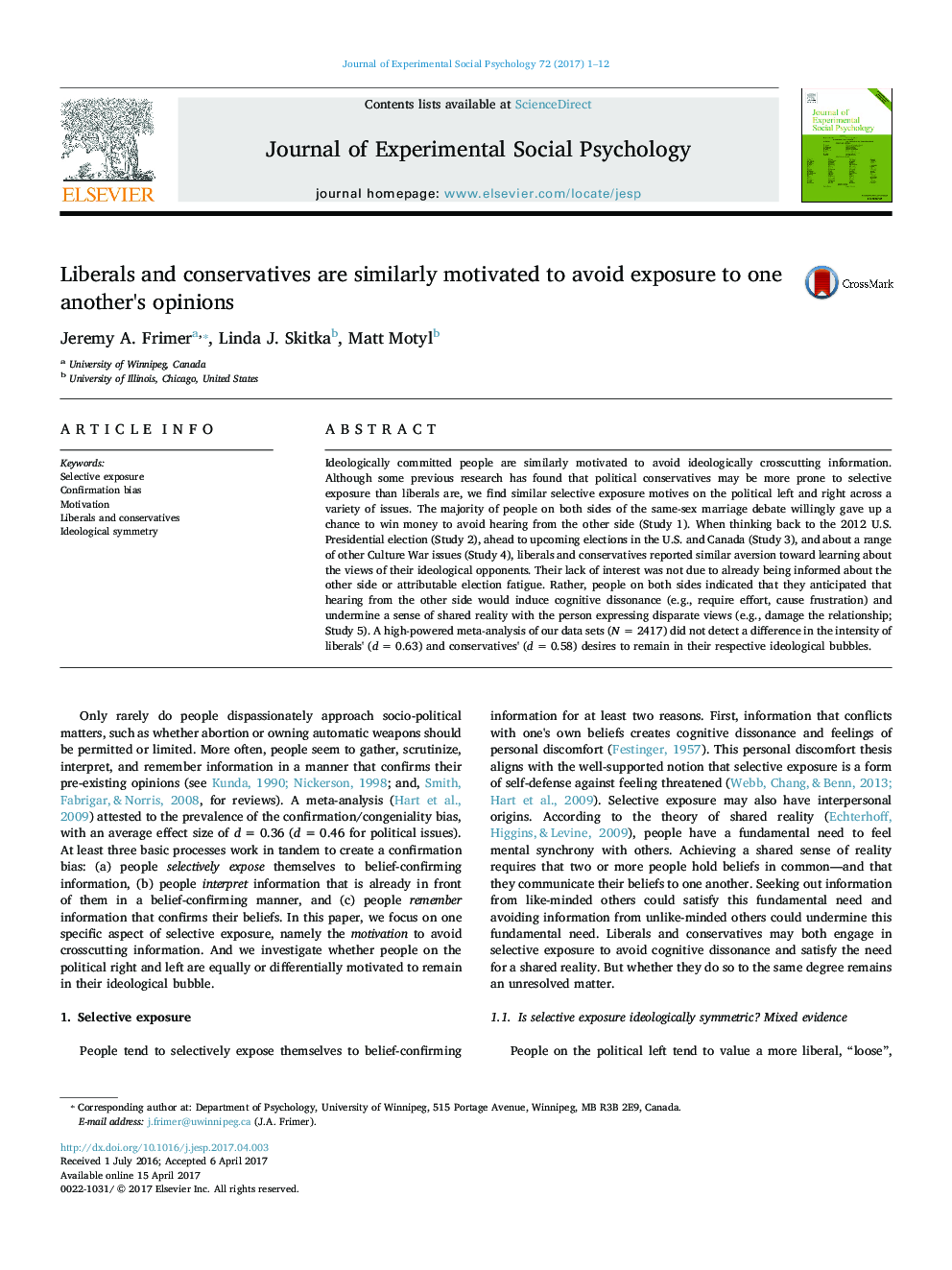| کد مقاله | کد نشریه | سال انتشار | مقاله انگلیسی | نسخه تمام متن |
|---|---|---|---|---|
| 5045664 | 1475851 | 2017 | 12 صفحه PDF | دانلود رایگان |
- Liberals and conservatives are similarly motivated to avoid crosscutting information.
- Approximately two thirds of people gave up a chance to win extra money in order to avoid hearing from the other side.
- The aversion applied to issues such as same-sex marriage, elections, marijuana, climate change, guns, and abortion.
- The aversion is not a product of already being or feeling knowledgeable.
- People anticipated that crosscutting information would produce cognitive dissonance and harm relationships.
Ideologically committed people are similarly motivated to avoid ideologically crosscutting information. Although some previous research has found that political conservatives may be more prone to selective exposure than liberals are, we find similar selective exposure motives on the political left and right across a variety of issues. The majority of people on both sides of the same-sex marriage debate willingly gave up a chance to win money to avoid hearing from the other side (Study 1). When thinking back to the 2012 U.S. Presidential election (Study 2), ahead to upcoming elections in the U.S. and Canada (Study 3), and about a range of other Culture War issues (Study 4), liberals and conservatives reported similar aversion toward learning about the views of their ideological opponents. Their lack of interest was not due to already being informed about the other side or attributable election fatigue. Rather, people on both sides indicated that they anticipated that hearing from the other side would induce cognitive dissonance (e.g., require effort, cause frustration) and undermine a sense of shared reality with the person expressing disparate views (e.g., damage the relationship; Study 5). A high-powered meta-analysis of our data sets (N = 2417) did not detect a difference in the intensity of liberals' (d = 0.63) and conservatives' (d = 0.58) desires to remain in their respective ideological bubbles.
Journal: Journal of Experimental Social Psychology - Volume 72, September 2017, Pages 1-12
